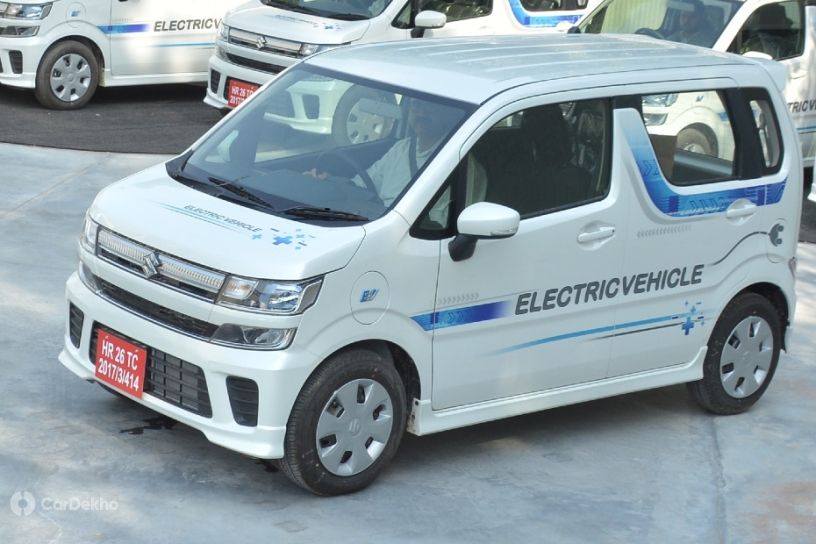Maruti Sees Potential For A Rs 10 Lakh EV In The Future Under One Condition
Published On Apr 19, 2022 09:00 AM By Sonny
- Write a comment
An EV of that price will have to have a smaller battery and therefore a range lower than 200km

The EV space in India is eagerly awaiting for Maruti Suzuki to partake with its renowned combination of usability and affordability. The ideal mass-market EV would be one priced below Rs 10 lakh with a practical range of around 200km. However, even Maruti does not believe that such a balance between affordability and range can be achieved anytime soon. But there is a middle ground to be found.
Maruti Suzuki’s new MD and CEO Hisahi Takeuchi recently stated in an interview, “If the infrastructure is everywhere, and wherever you go, there's always a quick charger available then maybe a very small battery in a less expensive car can be marketed and sold. But right now the environment is not that ready. I think it will take more time”

Currently, the input costs of EVs is quite high with the lithium-ion battery itself being responsible for a sizable portion. A larger battery would give the range customers would need to overcome range anxiety of an EV, but would also raise its price beyond Rs 10 lakh. It would be possible to make a model with a smaller car that can get closer to that price bracket but at the cost of a smaller battery with a reduced range.
"EV (under INR 10 lakh) is I think difficult because of the cost of the battery. If the customer accepts a very small battery, then it may be possible, but then I think the customer has range anxiety. Like if it is only 150km then he will be concerned about running out of charge” added Takeuchi.
Also read: Tata Motors MD Shailesh Chandra Explains Why Tata Will Not Make A Low-Range EV
While battery pack prices are expected to decrease as the manufacturing processes become more efficient, the unparalleled demand for the rare metals will counteractively raise the prices again. The rising prices of various other components in automotive manufacturing are also making it unlikely to make future cars more affordable. Such hikes can be witnessed with the Tata Nexon EV, India’s best-selling EV, whose prices have increased by up to Rs 96,000 since its launch in 2020.

The EV charging network in India has been growing steadily over the last couple of years but it is a long way away from being as reliable or as frequently available as a fuel pump. Quick chargers with a faster rate of current are even more rare to find. At present, the average EV charger takes around six hours to top up a battery capable of around 230km of real-world range. A fast charger would take just over 30 minutes for a top-up from 0 to 80 percent. An EV with a smaller battery could potentially offer a full recharge in a similar time period making the range of around 150km less inconvenient than it is today.
On the flip side, fast charging tech adds to the cost of an EV. Additionally, fast charging an EV on a regular basis would affect the longevity of the battery pack. This would mean that smaller and more affordable EVs used mainly with quick chargers would have a shorter lifespan than pricier cars with better and bigger battery packs.

Pictured here: Futuro-e concept from 2020 Auto Expo
Maruti’s first EV for India will clearly be focussed on offering a similar balance as Tata with well over 200km of real world range and a price tag of around Rs 15 lakh. Also, it will not arrive anytime soon with the earliest launch timeline set in 2025. In the meantime, Maruti has been testing EV tech in India to make sure that the final product is safe and ready for Indian climate conditions. In Takeuchi’s own words, "We are the company that is taking a very conservative approach to EV technology. But we have been testing our vehicles for a long time now because it must be perfectly safe for our customers and the Indian weather condition is probably one of the toughest environments for an EV.”
2 out of 2 found this helpful













